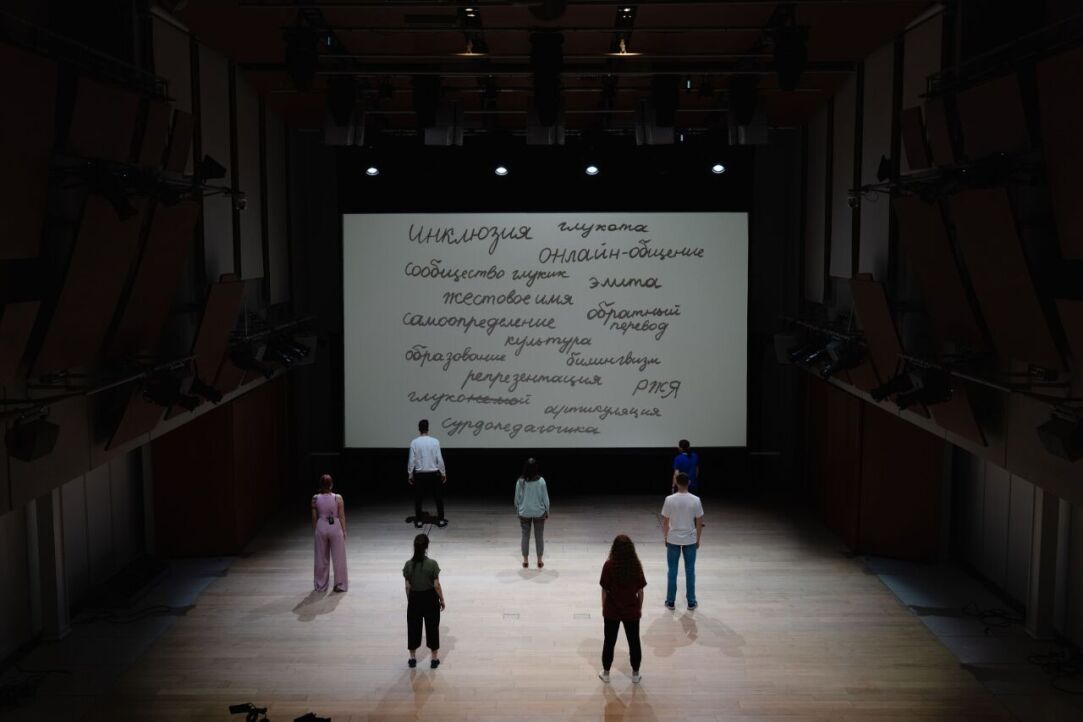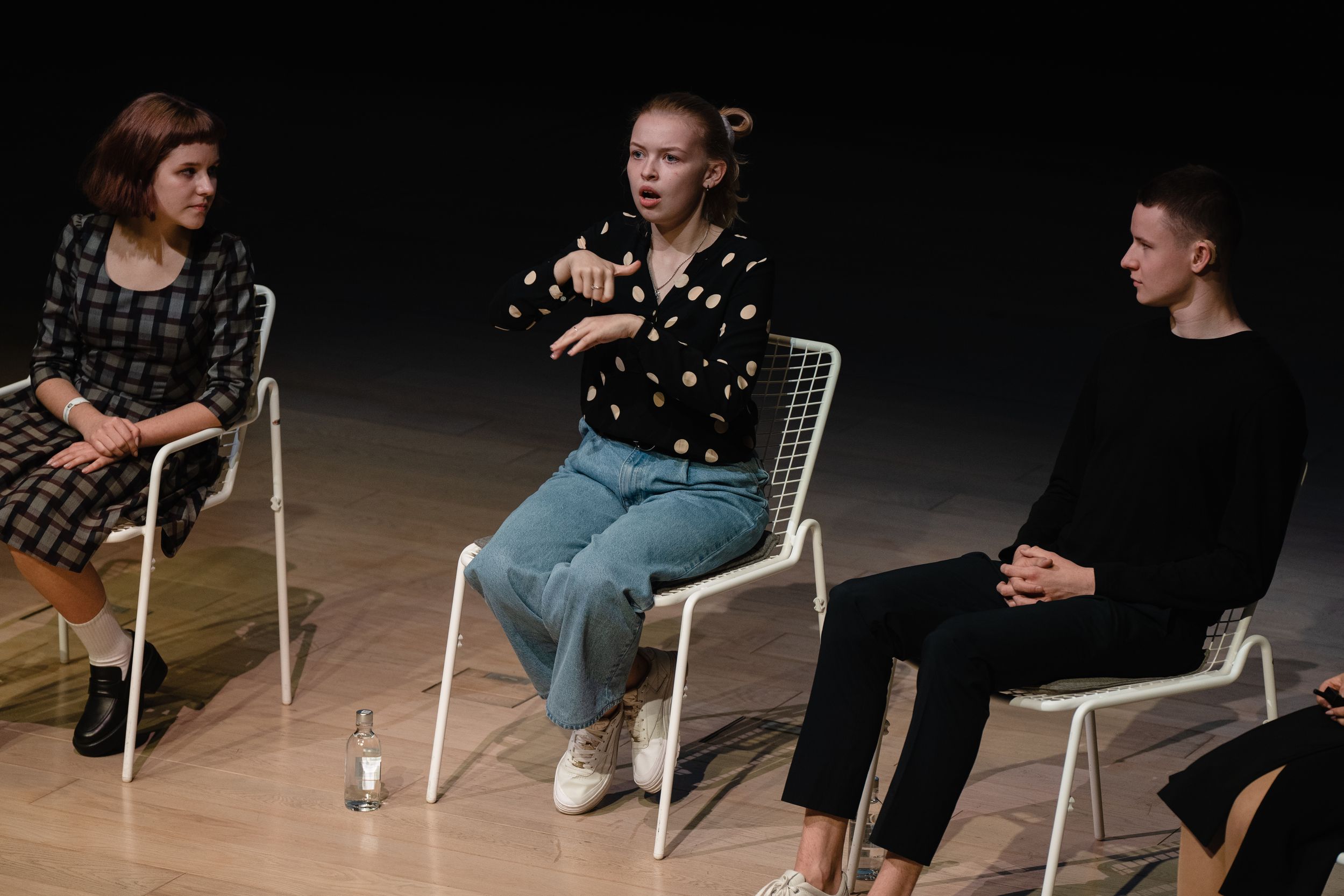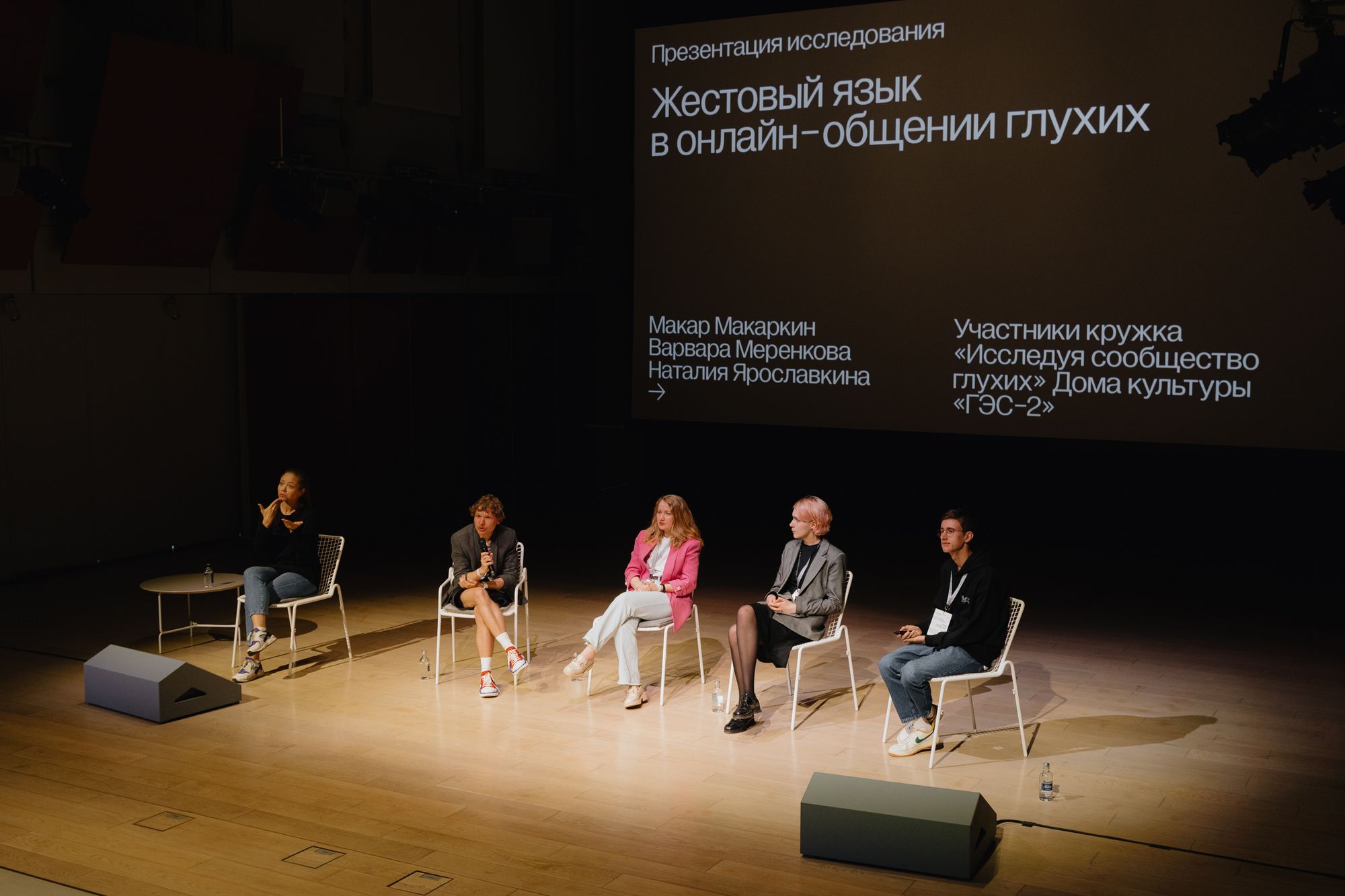HSE University and GES-2 to Hold Second Annual Conference 'Researching the Deaf Community'

HSE University's International Laboratory for Social Integration Research, together with the GES-2 House of Culture, will hold the Second Annual Interdisciplinary Conference 'Researching the Deaf Community.' The forum will address issues related to the social, cultural and linguistic aspects of deaf people’s lives. The conference will be held from May 31 to June 2 at the GES-2 House of Culture.
Recently, there have been significant changes in attitudes towards deaf and hard of hearing people. Deafness is no longer solely viewed through a medical lens; instead, the deaf community has evolved into a distinct culture with its own unique language. Furthermore, specialists from diverse fields, including sociologists, educators, and linguists, have increasingly embraced research within Deaf Studies, a field that emerged in the latter half of the twentieth century and investigates the deaf people's social life. Today, the popularity of research in this field is rapidly gaining momentum in Russia.
What does it mean for an individual today to be deaf or hard of hearing? How is their identity shaped? What are the potential life trajectories available to them? These and other important issues were the focus of attention for participants in the First Interdisciplinary Conference held last year.
'That conference featured 12 different events, including round tables, break-out sessions, discussions, and even a dance performance by members of the deaf and hard of hearing dance club of the GES-2 House of Culture,' according to Nikita Bolshakov, Deputy Head of the HSE School of Sociology and Leading Research Fellow of the HSE International Laboratory for Social Integration Research. 'Nearly 50 people, including both deaf and hearing participants, contributed as speakers and moderators, and approximately 200 guests attended all of the conference events.'

Vlad Kolesnikov
The event attracted the attention of not only members of the deaf community, specialists, and researchers, but also individuals who had previously shown no interest in this community's culture,' noted Vlad Kolesnikov, curator of programmes for the deaf community and accessibility for the deaf and hard of hearing at GES-2 and member of the conference organising committee. In his view, open discussions and engaging in dialogue with the speakers on matters of concern were particularly significant. 'This demonstrated the audience's interest in the topics addressed at the forum. Debates and discussions based on the conference presentations continued beyond the event, and many topics later received coverage in the media,' he observed.

This year, the conference will continue for three days, and speakers will have the option to participate in both offline and online formats. Additionally, the programme will be more diverse. 'Everyone interested will have the opportunity not only to prepare a presentation but also to propose a discussion and a roundtable on topics of significance to researchers and the community,' Nikita Bolshakov explains. ‘But, of course, the most important aspect is that this year, we anticipate presentations on entirely new topics that have not been explored previously in Russia. For example, participants of the “Researching the Deaf Community” study group will deliver presentations on topics such as deaf theatre, connection between literacy and sign language proficiency, media practices in the deaf community, and interactions with sign language interpreters. Based on the applications we have already received, it appears that other conference participants will also delight us with their interesting presentations.'
AREAS ADDRESSED BY THE 2024 CONFERENCE
Sign language and modern approaches to linguistic research of the deaf
Prospects for advancement of work opportunities and employment for the deaf
New practices among the deaf in the era of technologisation and digitalisation
Culture and identity of deaf and hard of hearing people
Representation of deafness in popular culture and the media environment
Sign language in education: the evolution of ideology and practices
The well-being, independence, and health of the deaf in the context of socio-economic transformations
Modern approaches to the methodology of research on the deaf community
Evolution of sign language translation techniques and practices: addressing old difficulties and encountering new challenges
According to Vlad Kolesnikov, the conference organisers have broadened their perspective and proposed discussion topics relevant to all members of the deaf community. The geography of participants will also be expanded. 'The conference will be attended by speakers from various Russian regions and from other countries. This will enable the forum to explore the deaf cultures and communities worldwide, including various sign languages, and to share the experience of studying the deaf communities both in Russia and internationally,' Vlad Kolesnikov believes.

'Researchers, sociologists, linguists and educators from the UK, Israel, Indonesia, Japan, Ghana, Ethiopia, and a number of other countries have confirmed their participation,' Nikita Bolshakov said. 'Some will deliver presentations online, but the majority are planning to attend in person, which we are very pleased about.'
Another distinctive aspect of the conference will be simultaneous interpretation into multiple languages: Russian Sign Language, English, as well as International Sign Language, which is used by deaf and hard of hearing individuals from various countries.
Applications for participation with presentations will be accepted until March 24th. See details here.
See also:
HSE University and GES-2: Second Conference ‘Researching the Deaf Community’
From May 31 to June 2, 2024, the second interdisciplinary conference ‘Researching the Deaf Community’ was held at the GES-2 House of Culture, organised in collaboration with HSE University. The international forum brought together experts from 11 countries and four continents. Participants discussed topics related to the social, cultural, and linguistic characteristics of people within the deaf community in the modern world.
HSE University and GES-2 to Hold Conference on Study of Deafness
On May 21, HSE University’s International Laboratory for Social Integration Research, together with the GES-2 House of Culture, will organise the first International Interdisciplinary Conference ‘What Does It Mean to Be Deaf? New Challenges for the Community’. The forum dedicated to the social, cultural and linguistic foundations of the deaf community’s functioning in the country and the world is planned in offline and online formats.
Common Research Interest: Welfare Studies
Throughout the year, the HSE International Laboratory for Social Integration Research (ILSIR) is hosting consulting seminars on ‘Care and Welfare in Post-Socialist Eurasia: Institutions, Discourses, Identities’ with presentations by leading foreign experts. The first seminar in the series, ‘Conceptualising Social Activism’ was held on April 4 with the participation of Professor Linda Cook, Academic Supervisor of HSE ILSIR. The second one will take place on April 18.



